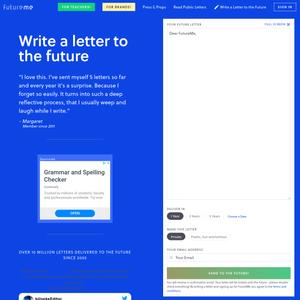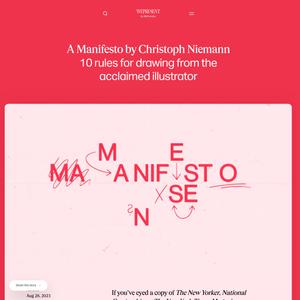
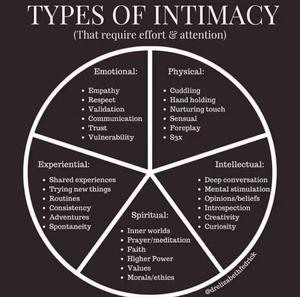
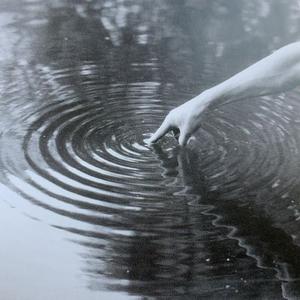
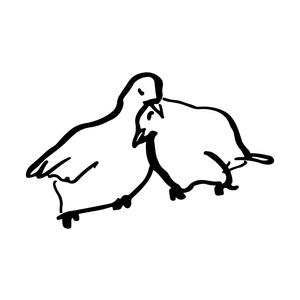
The unreality of the present moment should be a boon for artists and all who deal in the imagination. I don’t particularly care to have my awareness raised; I’d rather view art that tears open my consciousness, that opens portals into the mysterious. I like art the most when it doesn’t mean a thing, or otherwise when its beauty or strangeness transcends its subject. Stop making so much sense. Art should do more than communicate: it should move us; it should make us weep; it should bring us to our knees. It is, along with music, the purest expression of the human spirit. It is an important part of what makes us human—the most important part—and constitutes a continuum of yearning passed down the centuries that can be felt in every great museum or Renaissance chapel.
Art is often best when it’s absolutely deranged. We are irrational, incoherent beings, and artists and writers should embrace this once more. If you believe that artworks cast spells, you should use that magic for...
You can't avoid cringe if you want to create. As soon as you avoid cringe, you're avoiding the vulnerability that comes with creation.
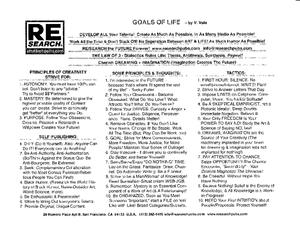
“The artists' understanding of the world is public, available to all, and can become a long lasting resource. Two people paying attention to a detail of the world make a society and the object they find significant has crossed over from meaninglessness to symbol. Art is always the replacing of indifference by attention.”
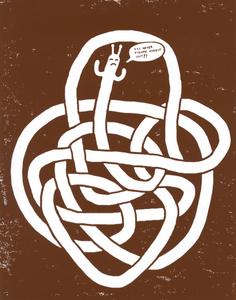
research is a way of life
it is an ongoing process that should be fun and led by curiosity and a desire to explore what is unknown to you
it goes beyond what formal education tells you research is— it should not feel like something you have to do. it should be something you love to do because research exists everywhere— research is looking up a recipe and modifying it to make it your own. it is learning about your favorite author’s life and why they wrote the book you’re reading. it is going down rabbit holes on topics you’ve just recently learned about.
but the core of research is the desire to learn and to share what you learn with others.
Well, answering for myself is, what I think artists are doing really is making worlds of some kind and they're inviting you to inhabit that world for a little while and see what it feels like and what you think about it. Asking you whether if there's anything about that world you can learn from. Sometimes in literature, it's very clear that's what's going on if you read something like a Dickens novel. You are clearly inhabiting a world that you don't live in for a little while, but I think its true of all arts that they in a way present you with alternatives, other places to be, other places in which to look back at the place you're really in. So for that to work for me they have to be places I haven't been before. When I get excited about something is when I go ooh I've never quite had this feeling before so thats what I'm looking for. I'm looking for sensations that are strange and familiar that connect to me but I don't really understand why they do and it's when I find one of...
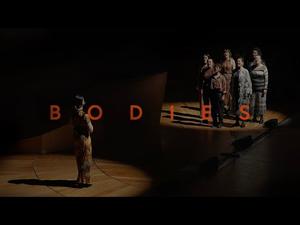
“I like what I like, and you like what you like, and art is the place where liking what we like, over and over, is not only allowed but is the essential skill. How emphatically can you like what you like? How long are you willing to work on something, to ensure that every bit of it gets infused with some trace of your radical preference? The choosing, the choosing, that’s all we’ve got.”
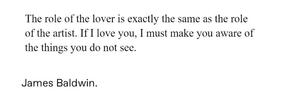
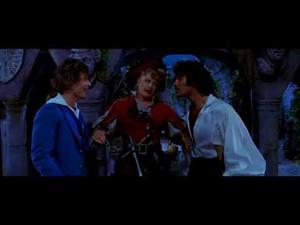
It’s paradoxical. As artists we may work towards controlling the meanings produced by the artwork with great intensity and intention; we tighten the screws on structures of representation and materiality, trying to limit and direct the possible readings of the work. Yet it is precisely in this tightly controlled work that inadvertent affects and effects squeeze out the edges. What we didn’t intend is often a crucial part of the final work, and the more intentional we are in our practice, the more these by-products ooze out and come into being. That seems to me like a good thing.
We all unconsciously wish for authority figures; on some level, we want to believe that somewhere there is one who knows, one who can guarantee and validate our identities and our practices. But this is an illusion: the one who knows doesn’t exist. Institutional structures tend to participate in this illusion, and to invite our participation. Within this framework, it is understood that there is something reassuring about hierarchies. Someone will judge your work, and it may be a harsh judgment this time around, but the basic structure (that there’s an authority somewhere—in New York, perhaps—who knows what’s good and what isn’t) is sustained. The structure itself is a comforting illusion.
"Do stuff. Be clenched, curious. Not waiting for inspiration's shove or society's kiss on your forehead. Pay attention. It's all about paying attention. Attention is vitality. It connects you with others. It makes you eager. Stay eager.”
I am listening now with all of my senses, as if the whole universe might exist just to teach me more about love. I listen to strangers, I listen to random invitations, I listen to criticisms, I listen to my body, I listen to my creativity and to the artists who inspire me, I listen to elders, I listen to my dreams and the books I am reading. I notice that the more I pay attention, the more I see order, clear messages, patterns, and invitations in the small or seemingly random things that happen in my life. In all these ways, I meditate on love.
⚘ adrienne maree brown
Overthinking > Write
Tired > Nap
Sad > Exercise
Anxious > Meditate
Angry > Listen to music
Lazy > Reduce screen time
Burnt out > Read
Stressed > Go for a walk
SEE YOU IN 13 HOURS
MAKE EPHEMERAL SHIMMERING ELECTRONS
DIGITALY YOURS
N
There is always two things.
1. The work you are trying to make
2. The work that you are actually making
Number two doesn’t reveal itself until you’ve forgotten about number one.
If youre reading this take some time for 1 deep breath right now
